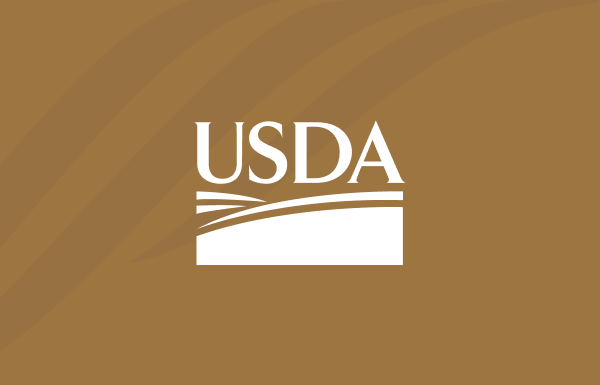When communities look to expand facilities, often they’ll call on Rural Development to learn what loan and grant opportunities might provide support.
Rural Development Community Facility Program Loan Specialists like Katie Hammer offer a valuable resource for those communities.
Recently during a routine trip to conduct compliance and security reviews, Katie along with Deputy State Directory Dana Kleinsasser, met with several organizations to discuss new possibilities for various projects on the Pine Ridge Indian Reservation.
A compliance review consists of verifying Rural Development-funded facilities meet required accessibility and non-discrimination laws.
The first stop was at Thunder Valley Montessori school, which provides an immersive Lakota language learning environment for pre-school aged children. This model is an ideal fit for the Thunder Valley Community Development mission, which includes a food sovereignty initiative, housing and home ownership opportunities, workforce development, and education. The daycare is interested in expanding their 1,200 square foot center by an additional 800 square feet.
"We just don't have the space."
Katie Hunter, the Montessori manager, said the current facility is operating under the Montessori guidelines, but in a much smaller footprint than what’s recommended.
“We just don’t have space right now to have the program organized as intended,” said Katie. “With this expansion, we’ll be able to offer students a more enhanced experience and have the proper setup for the learning materials.”
"Everything is ready to go."
Next, Katie and Dana met with Noah Holder, the Development Director with Oglala Lakota Housing Authority (OLHA). OLHA built seven homes for Veterans through the Veterans Administration’s Housing and Urban Development-Veterans Affairs Supportive Housing, or HUD-VASH, program. The Housing Authority is prepared to build an additional 13 homes.
“Everything is ready to go,” said Noah. “But with several businesses, facilities that require fire suppression, and homes in the area, water pressure is a major concern. We need to make sure we can deliver adequate water to this area before we expand further.”
Noah and his team are exploring options to increase water capacity for the planned development area. Katie discussed possible options and steps needed to determine if Rural Development can assist.
A visit with Echaga Corporation CEO, Gary Ruse, and consultant David “Tally” Plume identified new opportunities for growth on the reservation. Echaga is a wholly-owned tribal business entity and economic development arm of the Oglala Sioux Tribe tasked with pursuing business and investment opportunities to benefit the Oglala Sioux Tribe.
Gary and Tally pointed to dialysis services as a critical need within Pine Ridge. Because of the number of people needing dialysis, patients often begin treatment during early morning hours or travel to receive treatment.
“Echaga has a lot of great ideas that would help Pine Ridge improve medical services and provide economic development opportunities on the reservation,” said Katie. “We discussed several programs that might fit their projects. Gary and Tally can now visit with different organizations to see which projects should first receive their attention and how Rural Development might play a role in those projects.”
The final visit took the duo to Mazaska Owecaso Otipi Financial, a Community Development Financial Institution. Dana is currently serving in a dual role of Deputy State Director and Acting Single Family Housing Program Director. The meeting at Mazaska introduced her to staff and congratulate them on receiving a second round of funding through the 502 Native Relending Program.
“Mazaska has provided such a valuable service to the people of Pine Ridge Indian Reservation,” said Dana. “They’re really a force multiplier for the work Rural Development does throughout South Dakota, and we couldn’t do it without the great support of organizations like Mazaska.”
"We have a single father of eight who is so excited to buy his first home."
Mazaska recently received an additional $1 million through the Native Relending Program, which works to identify, educate and finance homeowners on native lands throughout the state. During the pilot program, which began in 2018, Mazaska received $800,000 to help seven families realize their dream of homeownership. Mazaska’s Executive Director, Colleen Steele, said they’re just getting started.
“We just signed the documents to begin lending the additional funding and already have borrowers ready to purchase their homes,” said Colleen. “We have a single father of eight who is so excited to buy his first home. This would have been very difficult without Rural Development’s programs.”
“Outreach like this is so important to maintaining good relationships with our borrowers,” said Dana. “In just one day we were able to accomplish so much.”
Katie agreed, adding, “This is just the first step for these organizations. There’s a lot of work for them to get these projects started, but by doing this outreach they now have the tools needed to begin exploring what projects should take priority.”
USDA Rural Development offers many Community Facilities, Rural Business, and Single-Family Housing programs to support growth throughout South Dakota and its Tribal Nations. To learn more about our programs, visit rd.usda.gov/sd. To receive emails about new programs, press releases and Rural Development stories, subscribe to South Dakota topics at GovDelivery. Follow us on Twitter at RD_SouthDakota.

